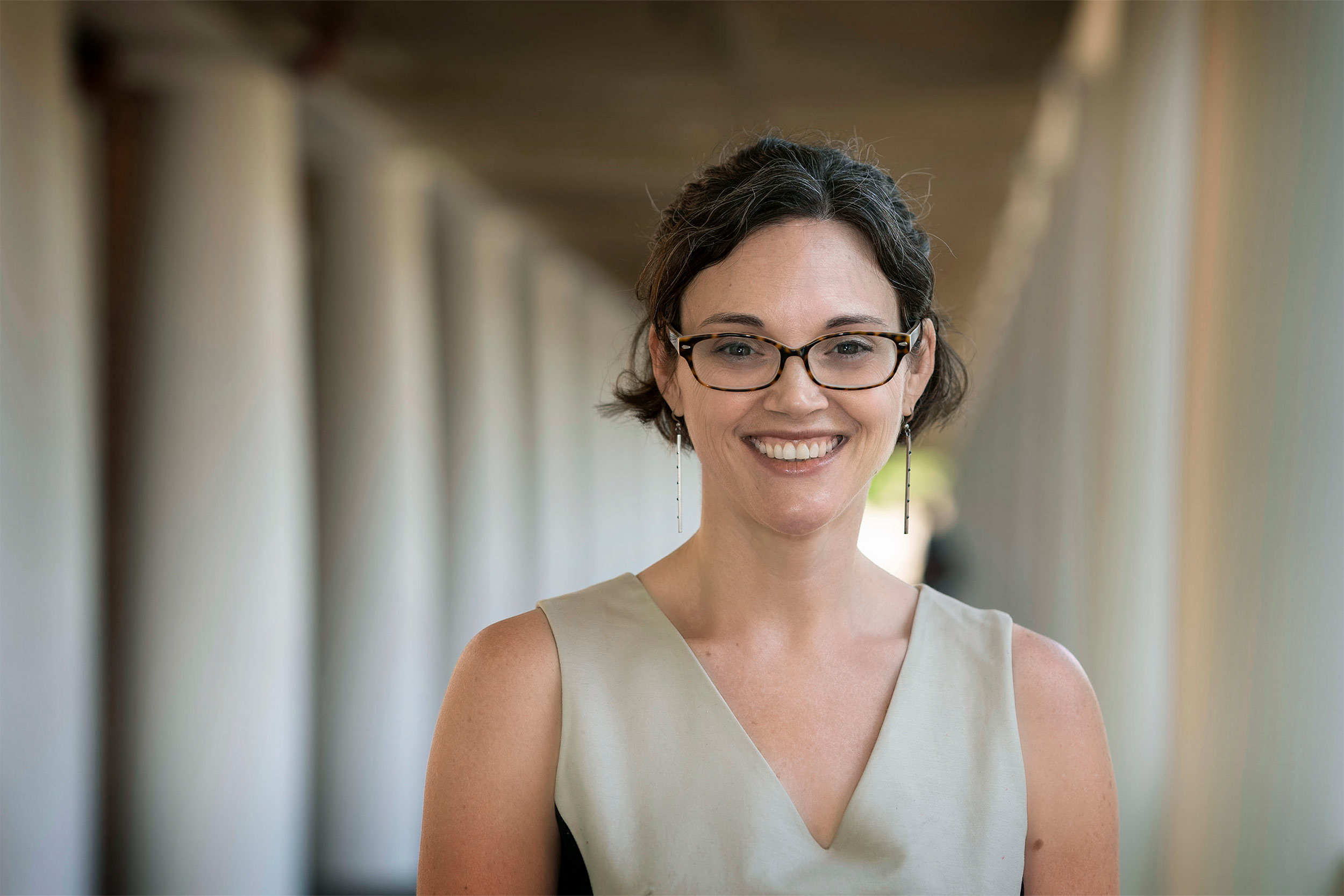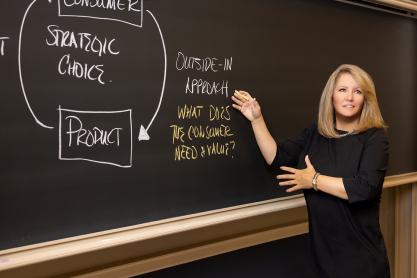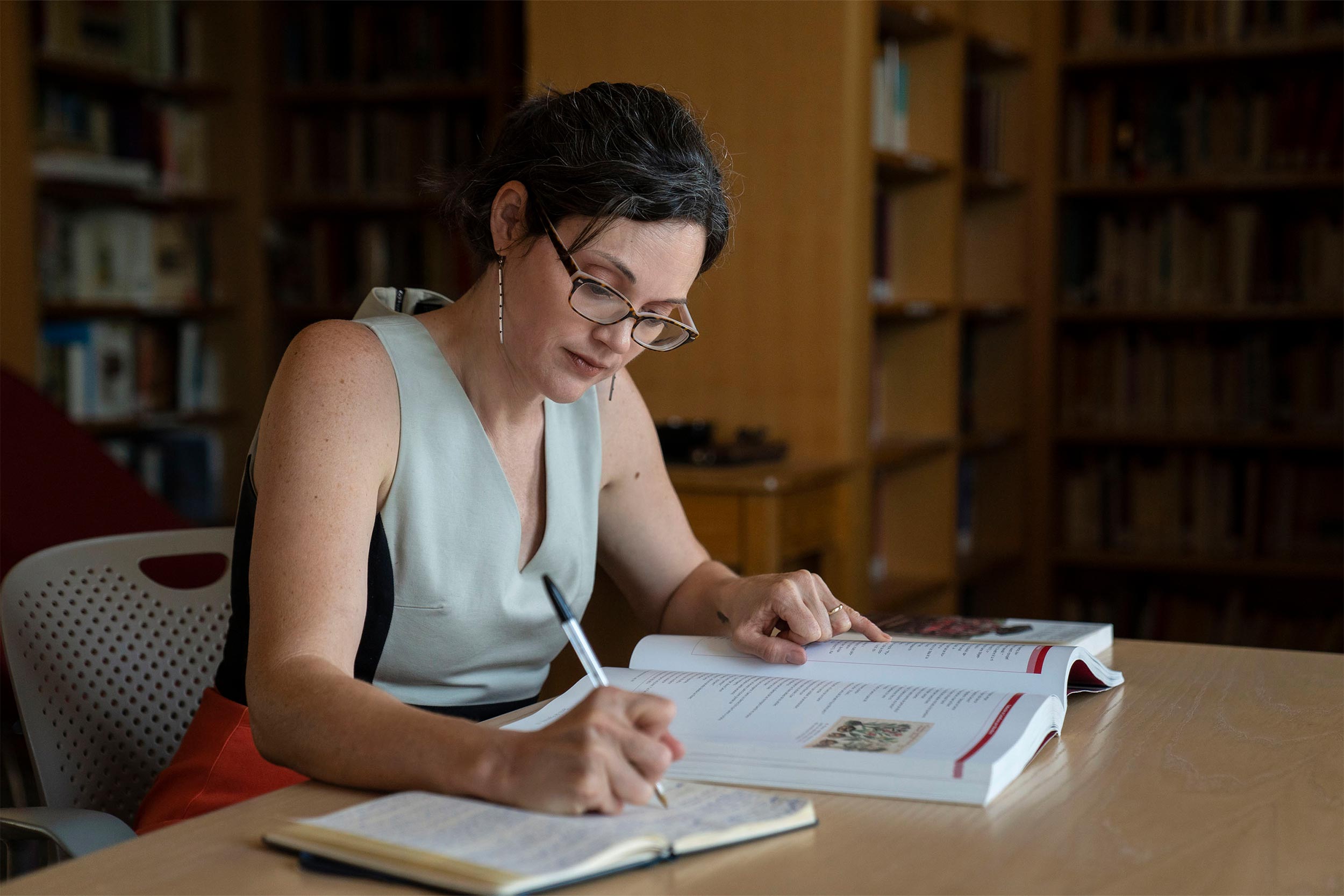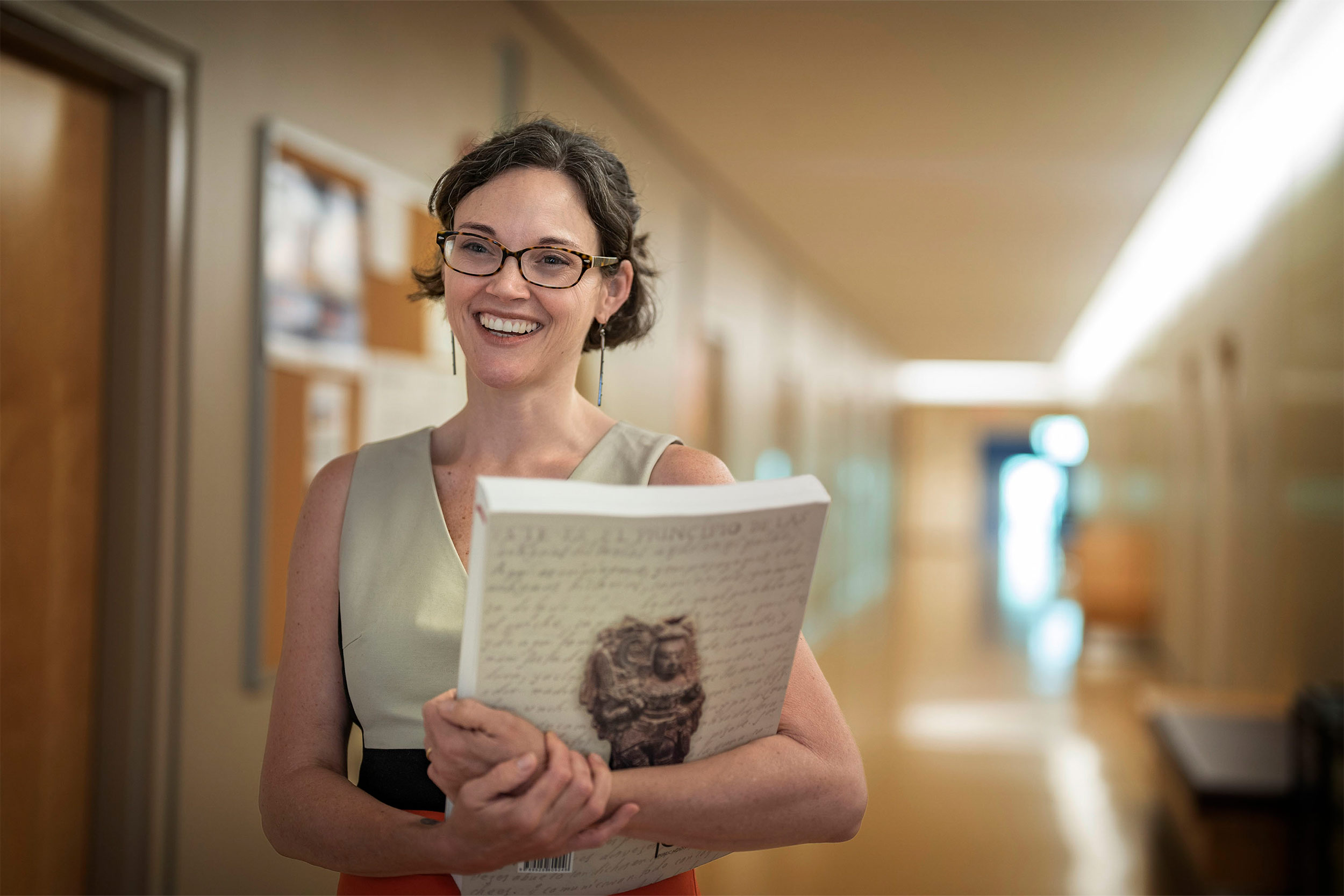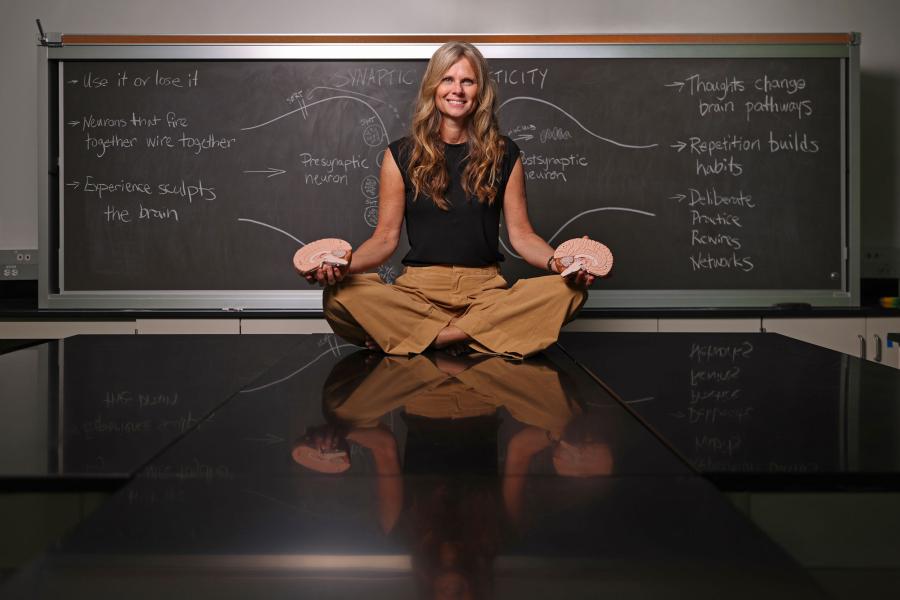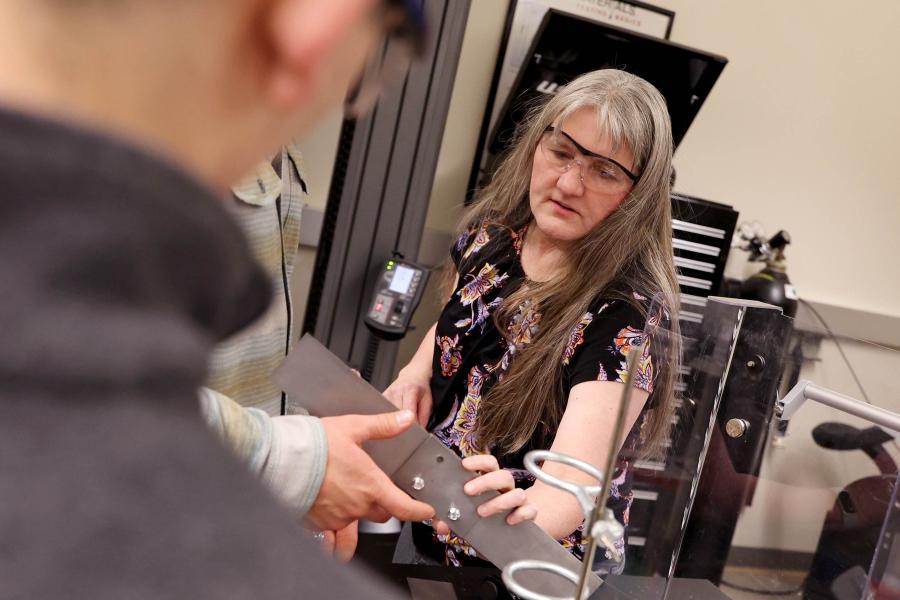“Having the painting in the book was such an honor, but having her put it on the cover was really, really special,” Graham said.
A Modern Approach to Precolonial Subjects
Bigelow takes an unconventional approach to teaching colonial Latin American literature. Instead of writing seminar papers, students can create Wikipedia pages for Mesoamerican gods and translate manuscripts from the Albert and Shirley Small Special Collections Library.
“We at UVA have access to an extraordinary wealth of material. That is an amazing privilege,” Bigelow said. “How can we use our skills to share those resources with other people? And how can we learn new skills through the act of creating knowledge and materials for communities?”
Her interest in digitizing documents that some people struggle to access has become a model for her students. One student’s dissertation on Santa Muerte, a folk saint, turned into an oral history in the form of a podcast about a motorcycle group devoted to the saint.
Another student, fascinated by Indigenous peoples’ use of stones, realized there might be a connection between the descendants of Black enslaved workers and Indigenous communities in South America when he passed the Memorial to Enslaved Workers on Grounds. He then produced an oral history of people in Charlottesville and was able to relate them to his interest in Latin American studies.
Bigelow’s approach has inspired her students.
“I would like to be like her, if I ever get to be a professor,” said Sergio Silva, the fourth-year doctoral student who created the oral history of Black Charlottesville residents. “She can be a mentor for everybody. … She has this capacity of listening to what the student is bringing and creating something amazing.”
Nasser Meerkhan, now a Spanish professor at the University of California, Berkeley, credited Bigelow with the fact that he’s now up for a tenured position.
“I don’t think I would have made it this far without Allison,” Meerkhan said.
Bigelow is passionate about accessibility. Elementary school students, regardless of whether they’re in the United States or Honduras, tend to rely on Wikipedia for their homework, but Spanish-language entries on Indigenous concepts, objects and deities are lacking.
“That sends a really profound message to those elementary school students, that their experiences don’t matter,” Bigelow said.
That pushed her to have her students make Wikipedia-style entries for some of those terms. Now students abroad are using the new resources, as the Popul Wuj project get the most traffic during the school week.
Bigelow brings the same community-building orientation to Grounds, from research and teaching to her membership in the University’s Native and Indigenous Relations Community and mentoring students within and outside of UVA.
